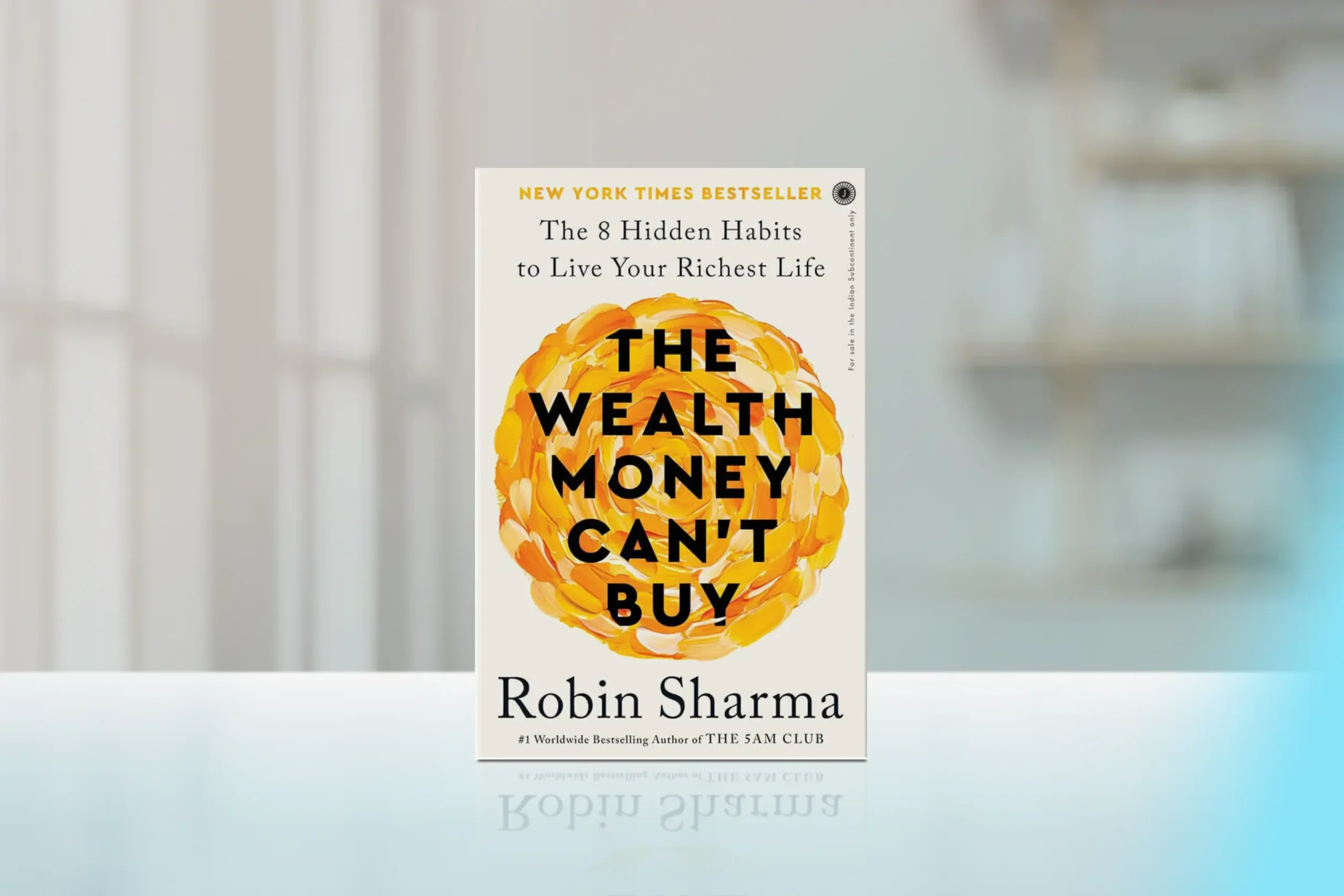You’ve probably heard countless tips on “finding your purpose”—but not all of them are true. In fact, some of the most common advice is based on myths that can leave you feeling stuck or inadequate. These are the lies you’ve been told about finding your purpose, and they’re holding you back. Let’s clear the confusion and uncover what really matters.
Inside this article:
Why Finding Your Purpose Actually Matters
Ever feel like everyone else has their life figured out while you’re still wondering what you’re supposed to be doing? You’re not alone. Most advice about finding purpose is misleading and keeps you stuck chasing the wrong things.
Let’s tackle the biggest lies and myths about purpose. The research on why this matters is compelling:
- People with a strong sense of purpose live longer – A study published in Psychological Science found that having a sense of purpose was associated with longevity, regardless of age
- Purpose reduces stress and improves mental health – Research Studies show that purposeful people have lower levels of stress hormones and inflammation
- It boosts career satisfaction and performance – Studies by Harvard Business Review indicate that employees who find purpose in their work are 4x more engaged and perform significantly better
- Purpose enhances resilience during difficult times – Harvard Health Research demonstrates that people with higher purpose show better psychological and physical responses to stress
The benefits are real and life-changing. But here’s the problem: most of what we’ve been told about how to find purpose is completely wrong.

1. Your Purpose Will Magically Appear
This might be the most damaging myth of all. The idea that purpose is something that happens to you—like getting struck by lightning or finding a twenty-dollar bill on the sidewalk.
Why it’s important: Research from Stanford’s Hasso Plattner Institute of Design, featured in “Designing Your Life” by Bill Burnett and Dave Evans, shows that purpose emerges through active experimentation and reflection, not passive waiting. When you sit around hoping for clarity to strike, you’re actually moving further from it.
Purpose isn’t a cosmic download. It’s something you build through trying things, noticing what resonates, and making intentional choices about how you spend your time and energy.
Try this: Pick one small thing you’re curious about and commit to exploring it for two weeks. Notice what you learn about yourself in the process.

2. You Only Have One True Purpose in Life
This one makes purpose feel like a high-stakes treasure hunt where there’s only one right answer. No pressure, right?
Why it’s important: Ken Robinson’s research in “The Element” reveals that many fulfilled individuals have discovered multiple areas where their passions and talents intersect. Limiting yourself to finding “the one” can cause you to dismiss perfectly valid paths that could bring meaning and satisfaction.
The truth is, you’re complex. Your interests, values, and circumstances change over time. A mother of three might find purpose in raising her children, building a business, and volunteering at the animal shelter—all at once or in different seasons of life.
Try this: Instead of asking “What’s my purpose?” try “What’s meaningful to me right now?” The answer might surprise you. Even people who seem laser-focused on one thing usually have multiple sources of meaning in their lives.

3. Passion and Purpose Are the Same Thing
Ah, the classic “follow your passion” advice. It sounds romantic, but passion can be fickle. One day you’re obsessed with pottery, the next you’re convinced you should become a marine biologist.
Why it’s important: Cal Newport’s research in “So Good They Can’t Ignore You” demonstrates that passion often follows mastery and contribution rather than preceding them. Purpose runs deeper than excitement—it’s about values, impact, and what you want to contribute to the world.
Passion is the spark; purpose is the steady flame. You might feel passionate about true crime podcasts, but that doesn’t mean your life’s purpose is solving murders. Purpose is more about how you want to show up in the world and what you want your life to stand for.
Try this: Ask yourself “What kind of person do I want to be?” rather than “What excites me most?”

4. You’ll Just “Know” When You’ve Found It
The Hollywood version of finding purpose involves dramatic music and a moment of crystal-clear certainty. Real life is messier than that.
Why it’s important: Viktor Frankl’s observations in “Man’s Search for Meaning” show that meaning often emerges gradually through our responses to life’s circumstances. Most people experience purpose as a growing sense of alignment rather than a lightning-bolt revelation.
Purpose often feels more like putting on a pair of glasses and gradually realizing you can see more clearly. It’s less “aha!” and more “oh, this feels right.”
Try this: Pay attention to moments when time seems to flow differently—when you’re absorbed in an activity or conversation. These small signals matter more than waiting for the big moment.

5. Your Purpose Has to Be Your Career
This one puts enormous pressure on your job to fulfill every aspect of your identity and sense of personal worth. That’s a lot to ask of a paycheck.
Why it’s important: Vicki Robin and Joe Dominguez’s research in “Your Money or Your Life” reveals many people find their deepest sense of purpose outside traditional employment structures. Purpose can live in your relationships, creative pursuits, volunteer work, or how you choose to spend evenings and weekends.
Some people do find purpose through their careers, and that’s wonderful. Others find it in being an incredible parent, mentoring young people, creating art, or building community. There’s no rule that says your job has to be your calling.
Try this: List three things that give your life meaning that have nothing to do with your job. Notice how rich that list probably is. Even people who love their work usually find meaning in other areas of life too.

6. Purpose Brings Constant Happiness and Fulfillment
If only life worked this way. But purpose isn’t a happiness pill—it’s more like a compass that helps you navigate both good times and difficult ones.
Why it’s important: The Dalai Lama and Desmond Tutu’s collaboration in “The Book of Joy” emphasizes that meaningful lives include suffering and that purpose helps us find meaning within challenges. When we expect purpose to eliminate life’s difficulties, we set ourselves up for disappointment.
Purpose doesn’t make everything easy. It makes the hard parts feel worth it. The parent dealing with a teenager’s attitude problems, the teacher facing budget cuts, the entrepreneur handling rejection—they’re not happy all the time, but they’re clear on why their work matters.
Try this: Next time you’re struggling with something meaningful, remind yourself that difficulty doesn’t negate purpose—it often deepens it.

7. There’s One Perfect Path Waiting for You
This myth suggests there’s some ideal life blueprint out there with your name on it, and if you could just find it, everything would fall into place perfectly.
Why it’s important: William Bridges’ insights in “Transitions” demonstrate that meaningful lives are built through a series of choices and adaptations rather than following a predetermined path. The search for perfection often prevents us from taking any action at all.
Life is more like jazz improvisation than classical music. You work with what comes up, build on what’s working, and adjust when things change. The “perfect path” is actually the one you create through your choices and responses.
Try this: Make a decision based on what feels right now, knowing you can course-correct later. Progress beats perfection every time. The people who seem to have it all figured out are usually just good at making decisions and learning from what happens next.

8. Finding Your Purpose Will Solve All Your Problems
Wouldn’t that be nice? But purpose isn’t a magic wand that makes your student loans disappear or fixes your relationship issues.
Why it’s important: Farrah Storr’s research in “Discomfort Zone” shows that purposeful living often involves embracing challenges rather than avoiding them. Purpose gives you a framework for handling problems, not a way to escape them.
Having a clear sense of purpose is incredibly valuable, but you’ll still deal with traffic jams, difficult people, and unexpected setbacks. The difference is that you’ll have a clearer sense of why these challenges are worth navigating.
Try this: When facing a problem, ask “How can I handle this in a way that aligns with who I want to be?” rather than “How can I make this go away?”

9. You’re Behind If You Haven’t Found It Yet
Social media doesn’t help with this one. Everyone else seems to be living their best life while you’re still figuring out what you want to be when you grow up (at age 35).
Why it’s important: Arthur Brooks’ research in “From Strength to Strength” reveals that purpose often evolves significantly across different life stages, with many people discovering new sources of meaning later in life. There’s no expiration date on creating a meaningful life.
Some people seem to know their direction from childhood. Others find their groove in their thirties, forties, or beyond. Both paths are completely normal. Purpose isn’t a race with winners and losers—it’s a personal journey that unfolds in its own time.
Try this: Instead of comparing your timeline to others, focus on what small step you can take today toward what matters to you. Many of those people who seem so certain about their purpose? They’re still figuring things out too.
What Actually Works: A Different Approach
Now that we’ve cleared away the myths, what does finding purpose actually look like?
- Think of purpose as a practice, not a destination. It’s something you cultivate through your daily choices rather than a prize you win. Purpose grows through engagement with life, not withdrawal from it.
- Start with curiosity instead of certainty. Notice what draws your attention, what problems you naturally want to solve, what conversations energize you. These signals are more reliable than waiting for dramatic revelations.
- Focus on contribution over passion. Ask yourself how you want to be helpful, what you want to create, or what kind of difference you want to make. Purpose often emerges when we shift from “What do I want?” to “What does the world need that I can provide?”
- Embrace experimentation. Try things. Volunteer somewhere. Take a class. Start a side project. Have conversations with people doing work that intrigues you. Purpose reveals itself through action, not contemplation alone.
The goal isn’t to find the perfect answer—it’s to create a life that feels meaningful to you, right now, with room to grow and change as you do.
Your Purpose Is Waiting (But Not Where You Think)
Here’s what nobody tells you about finding your purpose: it’s not hiding somewhere out there waiting to be discovered. It’s something you create through the way you choose to live your life, the problems you decide to care about, and the contributions you make along the way.
Martha Beck’s work in “Beyond Anxiety” suggests that purpose often emerges when we follow our curiosity rather than our fears. Stop waiting for permission or perfect clarity. Start where you are, with what you have, doing what feels meaningful today.
What small step toward a more purposeful life could you take this week?
Related articles
How to Align Your Career and Professional Life with Your Purpose
Practical steps to make your work reflect what matters most to you.
Finding Your “Why”: Exercises to Uncover Your Life Purpose
Simple activities to help you discover your deeper motivations.
Purpose in Everyday Life: Small Ways to Make an Impact
Quick tips to add meaning to your daily routines.
Stories of People Who Found Their Purpose Later in Life
Real-life examples of finding purpose at any age.
The Connection Between Purpose and Personal Values
Why your values shape a fulfilling life—and how to align them.





